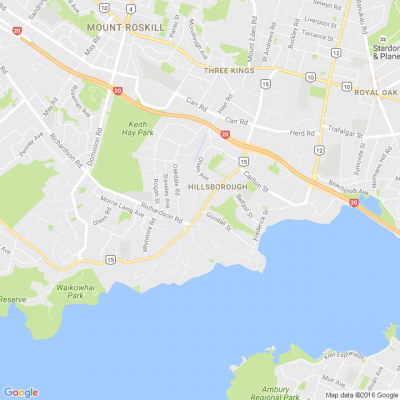Help us to "Light up Loneliness" by encouraging your local council to get involved.
Loneliness is a growing issue for Kiwis of all ages. But the good news is, that it is solvable!
The NZ Coalition to End Loneliness is running a ‘Light up loneliness’ campaign this month to raise awareness and encourage action on loneliness across Aotearoa.
The New Zealand Coalition to End Loneliness is a growing group of non-profit organisations, businesses and researchers working together to end loneliness for individuals, in communities, and at workplaces in New Zealand.
They are now calling on Local Government to help them “Light up loneliness”.
“Imagine if every Mayor and Council across New Zealand helped promote the “Lets End Loneliness” website and made tackling loneliness a priority, using their own local community resources,” says Stephanie Clare, Age Concern New Zealand Chief Executive.
“It would be a gamechanger. Taking this issue out of the shadows, reducing the stigma and shame, and giving it light is the aim of the campaign” she says.
Social connection is a key factor for healthy, prosperous people, communities, and workplaces, but loneliness in New Zealand is increasing. In the March 2021 quarter 18.4% of New Zealanders felt lonely most, all or some of the time, up from 16.6% in 2018, and 13.9% in 2014.
“Many of us have experienced loneliness at some time in our lives and we know that feels horrible, but it can be addressed and solved. Together we can end loneliness for New Zealanders who feel isolated” says Sam Johnson, Founder and Chief Executive of Student Volunteer Army.
The letsendloneliness.co.nz website provides information on tackling loneliness and where to get help, as well as up-to-date news and research.
“The website is designed as a source of information which also links people to support services. We challenge every Local Council in New Zealand to create a link on their own websites to letsendloneliness.co.nz” says Sam Johnson.
The recent COVID-19 lockdown highlights that everyone can feel isolated and lonely. Catherine Hall, Chief Executive of Alzheimers New Zealand believes everyone should feel safe, supported, loved, and connected.
“Sadly, people often find family, whānau and friends take a step back just when they need them most. We stand alongside our coalition partners and with all New Zealanders, to make sure no one feels alone.”
Help light up loneliness! The campaign is not just for councils. Anyone can create a link to the letsendloneliness.co.nz or post a mention through social media channels to support the ‘Light up loneliness’ campaign.
Together we can end loneliness, one person, one community, one workplace at a time.

Poll: Should all neighbours have to contribute to improvements?
An Auckland court has ruled a woman doesn’t have to contribute towards the cost of fixing a driveway she shares with 10 neighbours.
When thinking about fences, driveways or tree felling, for example, do you think all neighbours should have to pay if the improvements directly benefit them?

-
82.1% Yes
-
15.2% No
-
2.7% Other - I'll share below
The Story of Hine and Tāne Mahuta - Day 12
Long ago, Hine-te-Aroha, a daughter of the great chief Tāwhaki, was known for her beauty and devotion to the atua (gods). She was deeply connected to Tāne Mahuta, the atua of the forest and creator of humankind. In a past life, Hine had pledged herself to Tāne Mahuta, dedicating her aroha (love) and wairua (spirit) to him.
However, her father Tāwhaki disapproved of Tāne Mahuta. He saw Tāne as a humble being who spent his days nurturing the ngahere (forest) and the creatures of the world, living a simple life far from the wealth and prestige of a chief. Tāwhaki wanted his daughter to marry a great warrior or chief, someone who could uphold their mana (status). When Tāwhaki held a grand celebration to find a suitable match for Hine, Tāne Mahuta, knowing his humble lifestyle would draw scorn, chose not to attend.
Despite Tāne’s warning, Hine attended the celebration out of loyalty to her father. During the festivities, Tāwhaki openly ridiculed Tāne Mahuta, speaking of his simple ways and lack of riches. Hine, unable to bear the insults to her beloved, declared her undying love for Tāne and consigned herself to the ceremonial fire, joining the wairua realm.
Tāne Mahuta, upon learning of this, was overwhelmed with aroha and grief. He sent his mighty winds, led by Tāwhirimātea, to dismantle Tāwhaki’s gathering and humble the chief for his arrogance. Yet, Tāne’s love for Hine remained steadfast, and he vowed to bring her back. Hine was reborn as Hine-te-Waiora, the daughter of the sacred mountain ranges.
---
The Test of Devotion
As she grew, Hine-te-Waiora remembered her bond with Tāne Mahuta and began her karakia (prayers) to him. She vowed to marry only Tāne, despite her father showing her many wealthy and powerful suitors. Her devotion turned into months of rigorous karakia and fasting atop a sacred maunga (mountain).
The ngahere (forest) around her became peaceful, the winds softened, and even the fiercest creatures of the wild grew tame in her presence. Seasons came and went, but her focus never wavered.
Meanwhile, Tāne Mahuta, still grieving his past loss, had vowed never to take another partner. However, the atua noticed the chaos spreading in the human world as malevolent forces thrived unchecked. It was prophesied that only a child born of Tāne Mahuta and Hine-te-Waiora could restore balance.
To test her aroha and devotion, Tāne disguised himself as an old koroua (elder) and visited her. Pretending to doubt Tāne’s worth, he mocked him, saying, “Why would you dedicate yourself to a humble atua who lives among trees and birds? You could marry a great chief who could provide wealth and status.”
Hine-te-Waiora, though respectful, became enraged. “You may be an elder, but your words dishonor the one I love. Tāne Mahuta is the kaitiaki (guardian) of all life, and his mana is unmatched. I will hear no more of your insults!”
At that moment, the koroua revealed himself as Tāne Mahuta. “You have proven your unwavering aroha and devotion,” he said with pride. He took her as his bride, and together they returned to the sacred ngahere to restore harmony to the world.
---
Moral of the Story
This story teaches us that aroha (love) and pono (devotion) have the power to overcome all obstacles. When guided by sincerity and deep faith, even the greatest challenges can be transformed. Like Hine-te-Waiora, we are reminded to remain steadfast in our values and trust in the wairua to guide us. True love is not swayed by wealth or appearances but rooted in deep connection and understanding. Through aroha and devotion, balance and harmony can be restored to ourselves and the world around us.
What's your favourite recipe for courgettes?
Kia ora neighbours. If you've got a family recipe for courgettes, we'd love to see it and maybe publish it in our magazine. Send your recipe to mailbox@nzgardener.co.nz, and if we use it in the mag, you will receive a free copy of our January 2025 issue.








 Loading…
Loading…














